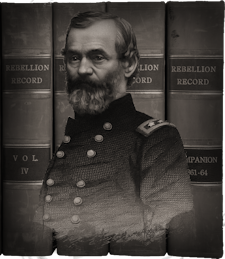February 14.—The Ninety-third regiment of New-York Volunteers, (Morgan Rifles,) under the command of Colonel John T. Crocker, left Albany for the scene of active service. The regiment embraces three companies from Washington county, two from Warren, one from Essex, one from Saratoga, Fulton and Hamilton, one from Oneida and Albany, one from Alleghany, and one from Rensselaer. There are five full companies of sharpshooters, and a large proportion of the other companies are good shots. Colonel Crocker is a lawyer by profession, and a native of Cambridge, Washington county. He was for a long time Colonel of the Thirtieth regiment N.Y.S.M.
—In the British House of Lords, in reply to a question from the Earl of Stanhope concerning the stone blockade at Charleston, S. C, Earl Russell spoke as follows, declaring his approval of that measure:
“He said the government had no official information on this subject subsequent to that which had already been laid on the table of the House. However, the sinking of vessels at the mouth of a harbor was an operation of so much importance that he could not but believe that the reports which had appeared must have some foundation. He was happy to hear the noble Earl’s protest against the permanent destruction of any harbor. Considering that these were commercial harbors, and that in time of peace, when there was severe weather, vessels of all nations, even these not ultimately destined for them, ran there to find refuge, to destroy them was undoubtedly an act of barbarity. The noble Earl would have seen that the reply of the American Government was that these stone vessels were intended to be an obstruction in the channel to aid the blockade, but that they were not intended for the permanent destruction of the harbors. In conversing with the American Minister at this Court, that was the view which he took. He said that the permanent destruction of Charleston harbor was impossible; that the two rivers which formed the harbor would be sure to make a channel, and that it was impossible, even if it had been intended, to effect the permanent destruction of the harbor. That, he said, however, was not the intention. The intention was only to make a temporary obstruction, and when peace was restored that obstruction would be removed. That, he believed, was the view taken by the American government. There had been some communication between Her Majesty’s government and that of France on this subject, with regard to which the government of the Emperor took the same view as that of Her Majesty. But whether France has made any official representation on the matter to the Federal Government he was not able to say.”— London Times, February 15.
—Edwin M. Stanton, United States Secretary of War, issued an order releasing all political prisoners held in confinement, on condition that they would take an oath not to aid the rebellion, or in any way attempt to injure the Federal Government. The President also granted an amnesty to such persons for all past offences.
—General Lander made a forced reconnoissance last night and to-day, and, with four hundred cavalry, broke up the rebel nest at Blooming Gap, Va., taking seventeen commissioned officers, fifty-eight privates, and killing thirteen others, with the loss of only two men and six horses.—Colonel Carroll, of the Fifth or Eighth Ohio regiment, made a very daring reconnoissance to Unger’s Store, in Va.—General Dunning arrived at New-Creek from Moorefield, Va., at which place he captured two hundred and twenty-five beef-cattle, and dispersed the guerrillas there, with the loss of two of his men wounded. —(Doc. 36.)
—The iron-clad steam gunboat Mystic was launched at the town in Connecticut from which she takes her name. Her extreme length over all is two hundred feet, and her armor, which extends two feet below the water-line, is composed of longitudinal iron bars three and a quarter inches thick, showing four inches face, and bolted every six inches with three-quarter inch bolts. Her rig is that of a brigantine.—N. Y. Times, February 16.
—Hamilton Fish and Bishop Ames returned to Washington to-day, and made report to the Government of their mission to relieve Union prisoners in the South. They repaired to Fortress Monroe, and made known their commission to the Confederate authorities at Norfolk, by whom the matter was referred to Richmond. A reply came refusing to the Commissioners admission to the Confederate territory, but expressing readiness to negotiate for the general exchange of prisoners. The Commissioners opened negotiation, which resulted in perfect success. An equal exchange was agreed on, but the Confederates had three hundred more prisoners than the National Government; with commendable magnanimity, they proposed to release these also on parole, if the Government would agree to release three hundred of their men that may next fall into its hands.
—Three rebel schooners and one sloop, all heavily laden with rice, lying at anchor in Bull’s Bay, S. C, were destroyed by an expedition under command of Acting Volunteer Lieutenant Edward Conroy.—(Doc. 42.)
—A skirmish took place near Flat Lick Ford, on the Cumberland River, Ky., between two companies of cavalry under command of Col. Munday, and two companies of sharp-shooters from the Forty-ninth Indiana, and some rebel pickets, which were prowling around the Ford. The fight took place near some rebel batteries, and resulted in a rebel loss of four killed, four wounded, and three taken prisoners. The National troops met with no disaster.—Louisville Journal.











